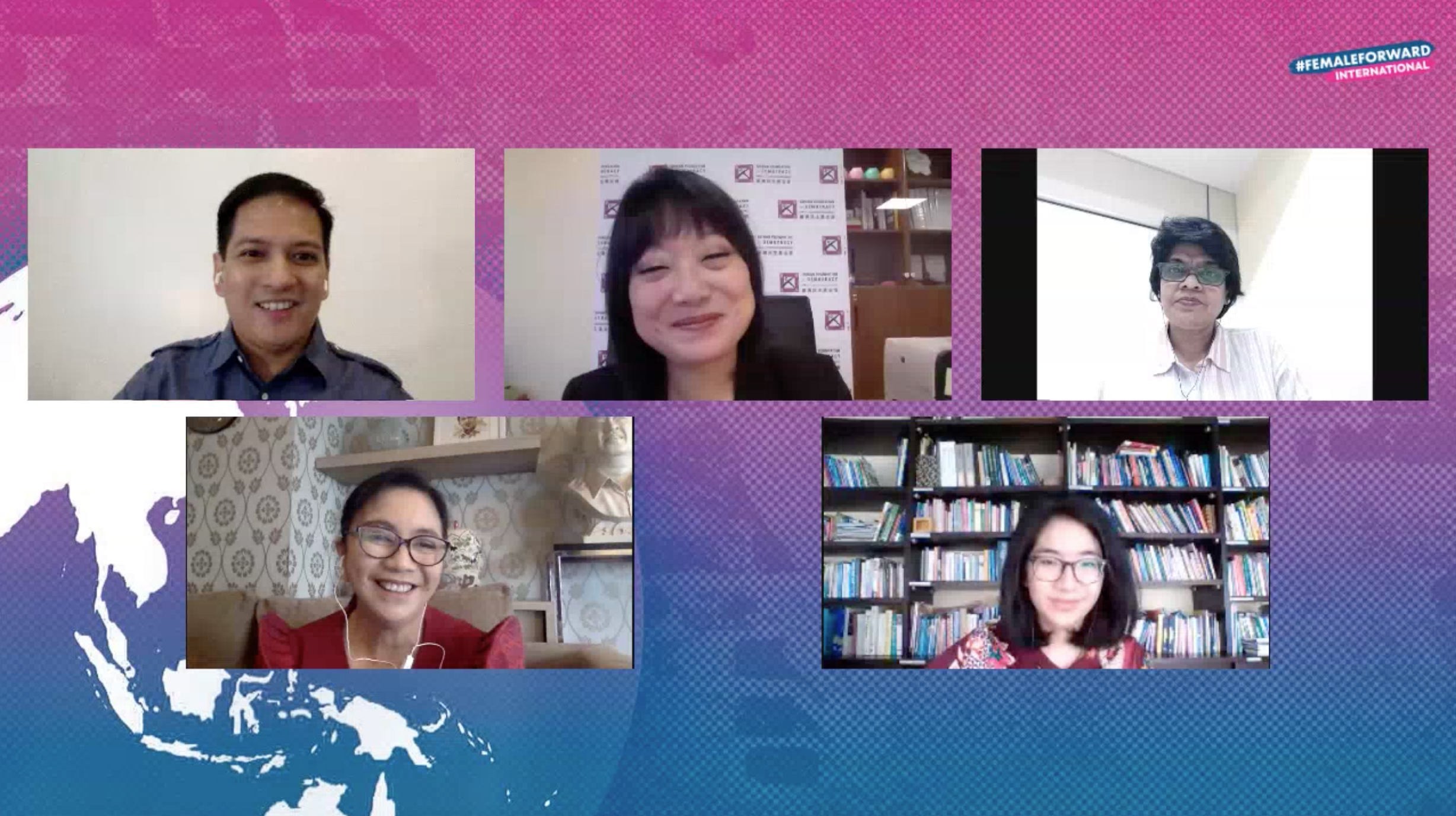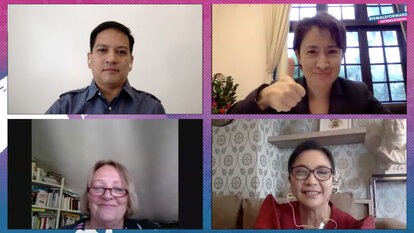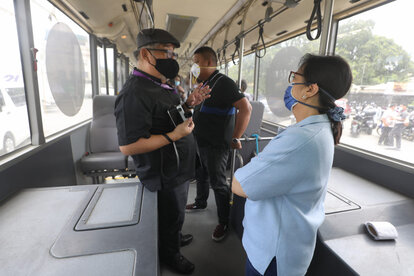Women provide leadership where it is absent

It has been widely reported in the media that many of the countries that have forged a successful response to COVID-19 are led by women. The question posed is: Is this a coincidence, or are there common characteristics of women leaders that equip them with the capabilities needed during such crisis situations?
In a webinar co-organized by the Friedrich Naumann Foundation for Freedom (FNF) and the Council of Asian Liberals and Democrats (CALD) entitled COVID-19: An opportunity to advance women’s rights and gender equality on 29 May 2020, Philippine Vice President Leni Robredo left a reassuring message: “As we have always done throughout our struggle for equality, we have made much out of little, and more than made do when we were given less.”
Introduced as one of the most effective women in power in the fight against the coronavirus by FNF Deputy Chair Sabine Leutheusser-Schnarrenberger, and as “an epitome of strategic and compassionate female leadership in the time of this pandemic” by CALD Chair Bi-Khim Hsiao, Robredo was lined up with Taiwan President Tsai Ing-wen and New Zealand Prime Minister Jacinda Ardern.

Clockwise: Atty. Arpee Santiago, Executive Director of the Working Group for an ASEAN Human Rights Mechanism, CALD Chair Bi-Khim Hsiao, Philippine VP Leni Robredo, and FNF Deputy Chair Sabine Sabine Leutheusser-Schnarrenberger
Collaborative leadership
Data analysis by Deep Knowledge Group revealed that the Philippines is among the top 10 countries in the world facing serious risks during the ongoing pandemic. As of this writing, the country has 18,086 cases with 3,909 recoveries and 957 deaths. Manila has endured one of the world’s longest lockdowns.
Robredo, whose office has raised EUR 1,140,405 cash donations as of 20 May, has been providing personal protective equipment and food care packages to hospitals and health care facilities. Her office also arranged free dormitories and shuttle services for medical workers after public transportation was shutdown.
“We didn’t do this alone. Working with the private sector was crucial. Volunteers from everywhere formed the cornerstone of our success and constant daily feedback paved the way for improvement. And, like many women who take care of domestic work in their own homes, our work remains unfinished,” said Robredo.
She mentioned that empathy inherent in women makes female leaders more attuned to the public’s needs, and therefore able to respond to constituents’ concerns as swiftly as possible. Robredo has also launched an app-based online community market to help out small vendors who are hard hit by the lockdown.
“Women provide leadership where it is absent, hope to those who have given in to despair, and a plan in a time where a clear view of the horizon is as important to the human spirit as food is for our bodies,” added the Vice President.

VP Robredo visits partners, volunteers, and drivers of her office’s Free Shuttle Service for Frontliners
Pink masks are cool
In the panel discussion, Taiwan Foundation for Democracy (TFD) Vice President Dr. Ketty Chen highlighted Taiwan’s effective containment of the coronavirus: 447 cases, with 421 recoveries and seven deaths; and its culture of diversity and tolerance: about 48% of Taiwanese legislators are female and its digital minister, Audrey Tang, is transgender.
Chen cited a recent incident that involved pink masks, and how it became an opportunity to promote gender equality.
When Taiwan’s health minister, who is male, learned that a school boy did not want to wear a pink mask for fear of bullying, he, along with other male government officials, donned on pink masks the next day in their regular press conference. “It’s cool to wear masks that are pink even if you’re a male. This part of gender education in Taiwan,” Chen remarked.
Sex disaggregated data for policy-making
Felippa Amanta of the Center for Indonesian Policy Studies (CIPS) stated that the pandemic is affecting almost 2.7 billion workers, 1.6 billion of those are in the informal economy of which 53% of women who are in sectors that are deemed to be at risk of getting infected with the coronavirus.
“We have to remember that this is disproportionately affecting women,” cautioned Felippa. “We need disaggregate data for things like health, economic, and social issues. Only when we have sex disaggregated data can we understand the problem, and then devise gender sensitive policies,” she advised. Felippa also pointed out that this health crisis is a chance to look at how to address unpaid care work that have overburdened women, and the urgency to strive for greater economic openness. “We can start with improving ease of doing business, and help women come back into the economy”, noted Felippa.
On the issue of domestic violence, Jayanthi Balaguru, President of the International Network of Liberal Women (INLW) and chair of CALD’s Women’s Caucus, raised that for every three months that the lockdown continues, 15 million additional cases of gender-based violence are expected worldwide.
Jayanthi, a lawyer in Malaysia, provides free legal aid to victims. She said that the stereotype way of thinking of women’s role – taking care of the house, exacerbates the problem. “We have made such good inroads, but there seems to be a slide backwards again (because of the lockdown),” expressed Jayanthi. She appealed for more media coverage on the issue, to bring out stories rather than just presenting statistics, and to elevate discussions on domestic abuse.
“I know that women in Southeast & East Asia are resilient. The region is prone to natural disasters where women are also the most vulnerable. But you endure and have always come out stronger,” said Leutheusser-Schnarrenberger.
The online event was held under the banner of #FemaleForwardInternational, a campaign to create space that provides equal opportunities towards women empowerment.